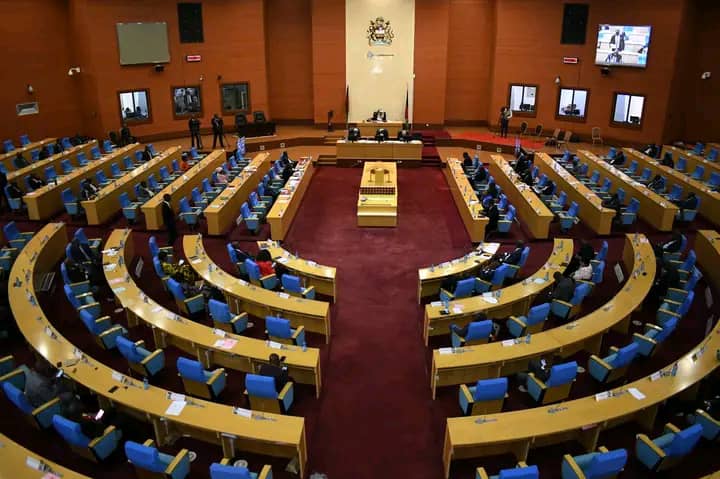Over Half of MPs, including 14 former Cabinet Ministers, Kicked Out as Malawians Demand Change
Malawi’s 2025 elections have triggered one of the biggest political shake-ups in recent memory, with more than 110 of the 193 Members of Parliament (MPs) from the 2019–2025 cohort losing their seats—among them 14 Cabinet ministers.

An analysis of results from district tally centres shows that entire delegations in five districts—Ntcheu, Nkhotakota, Chitipa, Likoma and Mwanza—have been wiped out, with voters choosing a completely new set of representatives.
Lilongwe emerged as the stronghold of incumbency, sending back over 10 MPs, including high-profile figures such as Sosten Gwengwe, Eisenhower Mkaka, Nancy Tembo, Ulemu Msungama, Monica Chang’anamuno and Collins Kajawa. Mangochi followed with five returning lawmakers, among them Aisha Mambo, Shadric Namalomba and Ruben Kanyama.
The results also show Thyolo retaining a core team of five—Charles Mchacha, Ben Phiri, Mary Navicha, Sandram Sikoti and Chimwemwe Chipungu—while Mulanje sent back four, including Kondwani Nankhumwa and George Chaponda. In contrast, other districts such as Rumphi, Ntchisi, Neno, Salima and Karonga saw only one or two incumbents survive.
Overall, the numbers reveal a brutal cull of sitting MPs. In Kasungu, only three survived—Simplex Chithyola Banda, Madalitso Kambauwa Wirima and Jailos Bonongwe. Zomba returned four, Ntchisi and Salima two each, and Dedza four. In Mzimba, just three—Martha Munthali, Emmanuel Chambulanyina Jere and Catherine Gotani Hara—retained their seats, while Dowa spared only three: Sam Kawale, Richard Chimwendo Banda and Arthur Sungitsa.
Political scientist Boniface Dulani described the 57 percent turnover as consistent with Malawi’s volatile electoral history. “In previous years, turnover has been as high as 71 percent. But the challenge with this cycle is the loss of institutional memory. A Parliament with over half of its members being new means less expertise in legislation when urgent issues face the country,” he said.
For civil society, the message is clear. Centre for Social Accountability and Transparency (CSAT) executive director Willy Kambwandira said the results highlight shifting political dynamics and growing voter impatience. “This level of rejection shows that loyalty to political parties or incumbents is no longer enough. Malawian voters are demanding tangible results in service delivery and governance. The scale of MPs voted out is a clear verdict of dissatisfaction with their performance over the past six years,” he said.
The shake-up not only reshapes the political map of Parliament but also signals a new era of heightened accountability—where voters are prepared to punish underperformance, regardless of party colours or political status.


I may wish that digestion of weaknesses the rejects had displayed over the parliamentary term be done, focusing on all party representatives
Conversely, analysis of strengths of those retaining seats
The two parameters are necessary because can form basis for future improvement.
Let us hear directly from the constituents themselves .
Somehow we need to strengthen accountability between elections rather than wait 5 years for the next ballot. Those elected in 2025 need to be held accountable and any corruption or misconduct called out and dealt with in quick time.
Congratulations. Just shows you have woken up Malawians.